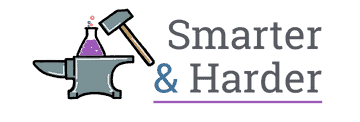The act of introspection is like drinking water, getting good sleep, and keeping a positive attitude in that it seems to weave its way into practically every topic in personal growth. From greater fulfillment and healthier relationships to more tangible goals like improving financial security, building self-knowledge through introspection continues to show up everywhere.
This simple but powerful practice requires little effort, but takes consistency and conscious honesty to succeed. Using it to build a stronger consciousness of yourself can empower you to change your life in countless positive ways.
What Is Introspection?
Introspection is the practice of exploring and sometimes analyzing one’s thoughts and feelings to understand oneself better. In other words, taking stock of what’s happening in your mind to become more self-aware. The term comes from two Latin words meaning “look” and “within.”
Historically, introspection has been a technique in psychology research. Psychologists including Wilhelm Wundt would train subjects in specific methods to recognize their mental and emotional states. The goal was to facilitate unbiased data for psychological study.
However, today we’re looking at the more mainstream understanding of introspection. That is, the habit and technique of looking inside yourself to better understand who you are and how you work. Deliberately channeling this technique can open many pathways to a happier, more peaceful, and more fulfilling life.
Benefits of Regular Introspection
The most direct benefit of introspective practice is that it leads to increased self-awareness. This self-awareness, in turn, enables numerous paths to personal growth and fulfillment.
Introspection can turn intuition into self-insight, creating a more conscious understanding of your various goals and challenges. With a strong awareness of self, you’re in a better position to face these things.
Self-reflection can also be tremendously beneficial to mental health. Personal awareness of your emotional states helps to address them appropriately. And working with your feelings, rather than against them, is essential to improved resilience and lower stress.
By extension, self-awareness can make you more aware of others’ mental states and act with greater empathy toward them. This shift facilitates healthier relationships and another layer of life satisfaction.
The Role of Self-Knowledge in Personal Growth and Happiness
If you’re a regular reader of Smarter and Harder, you’ve likely seen more than a handful of topics looking at personal growth from different angles: career development, building sustainable happiness, improving your interactions and relationships, etc.
Part of the core mission of this blog has always been to distill the themes that connect these many different areas of life. And one theme that comes up time and time again is the importance of individual awareness and self-knowledge.
Every person is a unique collection of hopes, fears, strengths, challenges, memories, and ambitions. The better you understand yours, the more success you will have in shaping your life the way you’d like it to be.
A more conscious self can help you understand your personal mission. What are some of the biggest things you want in life, and what kind of journey do you want to take to get there? Being self-aware also helps guide your journey toward those goals. For instance, what are your natural strengths? What typically comes easier to you than most people? These are tools that could aid you on your journey.
Alternatively, where do you often struggle more than the people around you? These obstacles could be opportunities to diversify your skills and knowledge, or something that would be simpler to work around and find another option.
Methods for Practicing Introspection
As a neuroscience research technique, introspection follows strict guidelines and often requires training from a professional researcher.
Fortunately, for our purposes, building greater self-awareness is much more straightforward.
All you need for personal, non-laboratory introspection is a little time to yourself where you’re willing to be consciously patient and honest about what’s going on in your head. But that doesn’t mean there aren’t a few specific ways to increase your self-awareness and self-knowledge.
Journaling and Reflection
The bread and butter of introspection is to take a little alone time to explore and understand your mental processes. Journaling is one phenomenal way to do this, but not the only way. Sitting somewhere peaceful and allowing your mind to explore, free from distractions, can be an unexpectedly powerful gateway to fresh insight and healthy self-consciousness.
However you choose to reflect, what’s most important is creating time and space to let your thoughts flow. Journaling helps to identify these thoughts as they are and gain insight into them as you go. Free-thinking offers similar potential for self-discovery, but potentially with a less directed focus and more room for thoughts to wander and branch from one to the next.
Mindfulness
Mindfulness is an invaluable practice in many areas of life, partly due to the role of introspection. Mindfulness practices like meditation and breathing exercises can help you develop observational awareness of your thoughts, senses, and even subconscious feelings.
As an introspection technique, the purpose of mindfulness is not necessarily deep self-examination; in fact, it’s often the opposite; observing your thoughts and emotions without judgment, and then moving on from them. For this reason, it pairs well with other introspection techniques like journaling: one to identify your own thoughts better and one to reflect on them.
This practice carries a benefit throughout your whole day of letting you understand what is going through your head without necessarily letting it define your experience.
Study Your Personality
For a more structured and reflective approach to building self-knowledge, try taking on the role of a psychology researcher with yourself as the subject.
Asking yourself questions and looking at past behavior is a great way to build a better understanding of your personality. What makes you tick? What motivates you, and what doesn’t?
You can build this type of understanding either through a more directed form of the reflection discussed above or through various personality tests. There are many options for personality tests online. Each one could offer a different way to look at your unique cognition and quirks, and you will likely find some more valuable to you than others.
Some popular options include the 16 Personalities, Enneagram, and Four Tendencies tests. Each will ask simple questions that encourage you to look within and answer honestly. The tests will then collate this insight and attempt to paint a picture of one or more elements of your personality.
This method of self-study is more literal and concrete than the other, more implicit forms of introspection we’ve discussed so far. It likely shouldn’t define your entire self-image, but can still be a useful tool to further develop your self-understanding.
Talk It Out
Introspection is usually a solitary exercise where privacy encourages feelings of psychological safety and, thus, honesty. However, alone is not the only way to go about it. You can also tap into the support of a trusted friend or professional therapist for help with your introspection journey.
Much like how journaling, meditation, and reflecting offer different ways to approach self-knowledge, so does talking through things aloud. Having someone there to listen patiently and occasionally offer their interpretations and insight could open up new doors to understanding that were otherwise beyond your reach.
One crucial caveat here is that it is still essential for this to be a journey of exploring and better understanding yourself. You are not here to form new impressions and opinions of yourself through the judgments of others. The difference is subtle but necessary to maintain. To the extent possible, try to maintain an environment where someone is helping you to unpack your thoughts rather than substituting their own.
Challenges With Introspection
Introspection involves taking an honest look inside yourself, which can come with difficulties.
For instance, not everything you discover about yourself will be positive or uplifting. Introspection can reveal personal weaknesses, unconscious biases, regrets, and other uncomfortable truths. This understanding is valuable for healing and growing but can also be hard to swallow.
Another big challenge with introspection is that minds can be resistant to change. For example, if you discover that you are sometimes rude to others because of personal insecurities, it’s natural to want to change that behavior. Unfortunately, however, tendencies like these are often deeply ingrained and unlikely to change overnight.
Introspection can pave the road to immense emotional and personal growth, but that road can be taxing. So if you notice yourself ruminating or fixating on a negative self-image, it’s always okay to take a break and allow your mind time to rest and continue processing in the background.
Incorporating Introspection into Your Routine
Introspection is not a one-time task or project; it’s an ongoing practice. Life will continue to offer you new highs and lows, resulting in new thoughts and emotions. Building self-knowledge is a process that continues in parallel to that progress.
The most important thing is to set aside sufficient time for introspection. It doesn’t need to take hours per day, especially when you are already in a rhythm with it. Even a few minutes at a time to reflect, journal, discuss, or process can go a long way.
In addition to the timing, the setting you use for introspection is crucial. Ideally, you want somewhere relatively private, quiet, and free from distractions. Things like a noisy environment, lots of notifications from a mobile device, or frequent conversations can quickly derail the process.
Finally, consistency is vital. Journaling and other methods for introspection are not nearly as effective once in a while as they are as regular practices. Modify this routine however you need to to make it easy to uphold. For example, you can stick to a very short time, stack the habit with other parts of your day, or add a reward or treat to give the routine a positive association.
Walking the Road to Deep Self-Knowledge
Introspection is as valuable a practice as it is varied and unique. It is a process that starts very simple, then becomes increasingly complex and flavorful as you continue to explore new, deeper sections of your inner world.
Many areas of personal growth — from career development to mental health — point to the paramount importance of self-knowledge, and it’s clear why. Someone who understands themselves well is prepared to better understand the world around them and make choices to help them live the life and experience they most want.
Consistent, honest introspection can help you build the self-knowledge you need to heal from past difficulties and grow into future successes. It takes little time and needs nothing besides your mind, so what are you waiting for?


Great article about a great practice!
Thank you for reading!